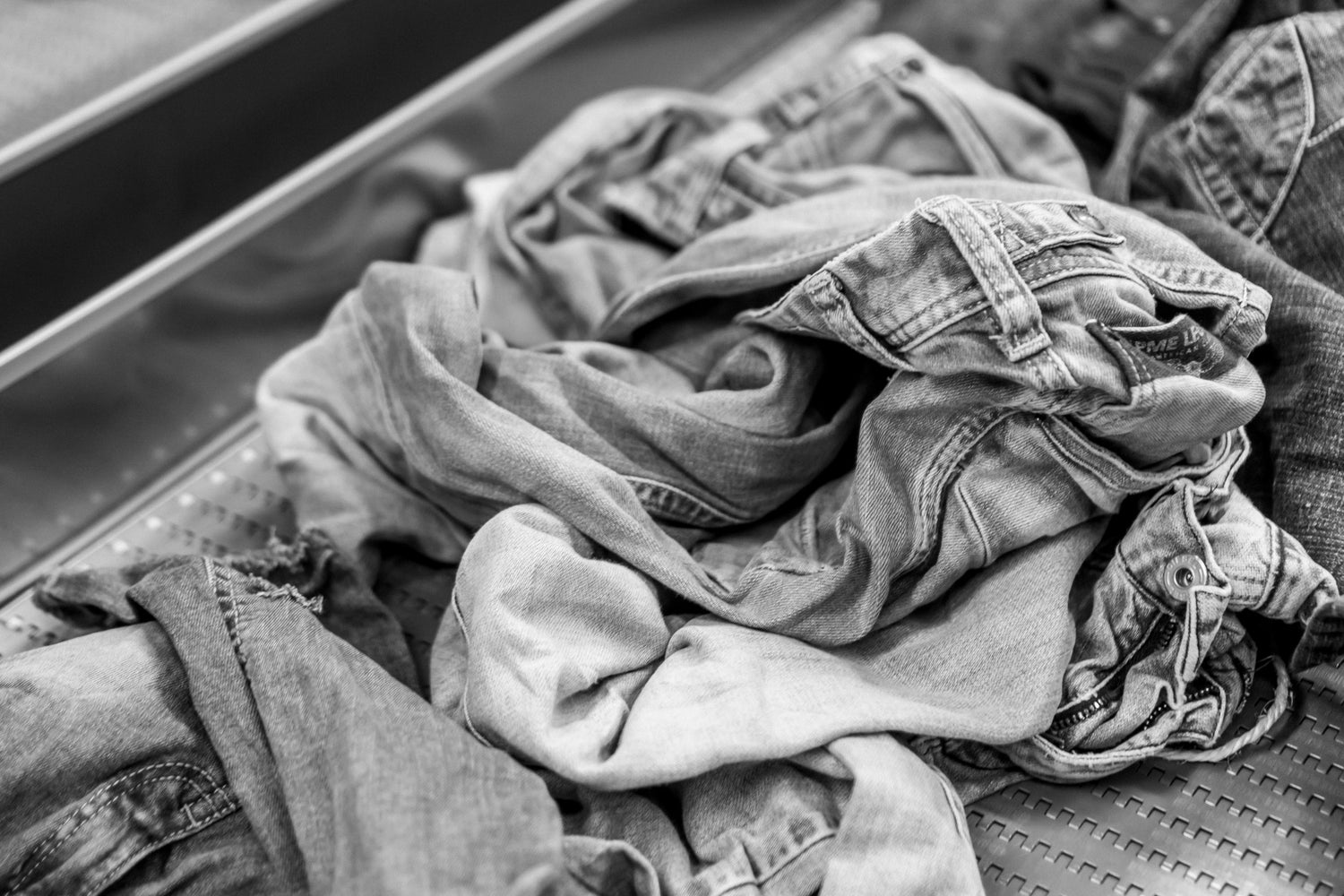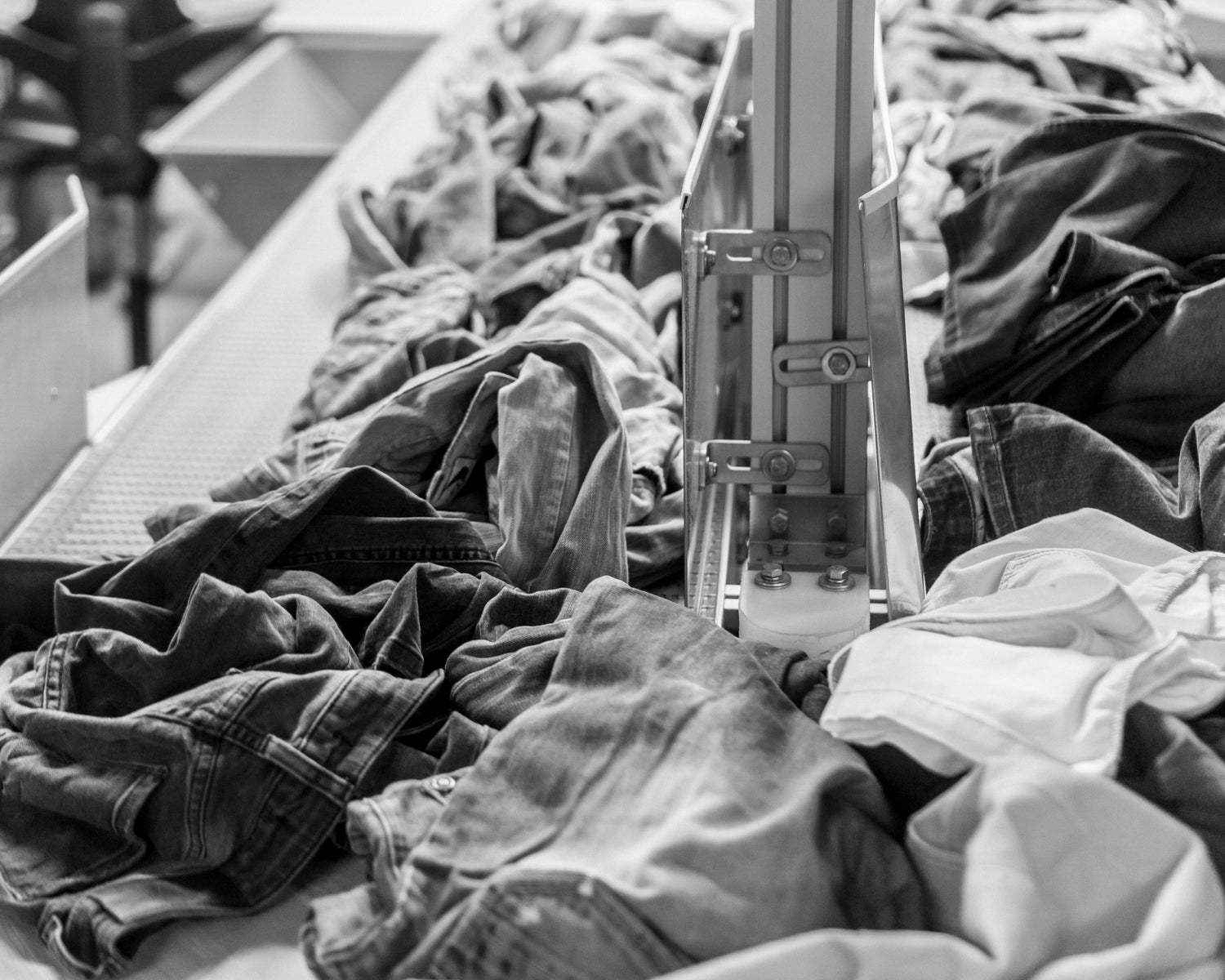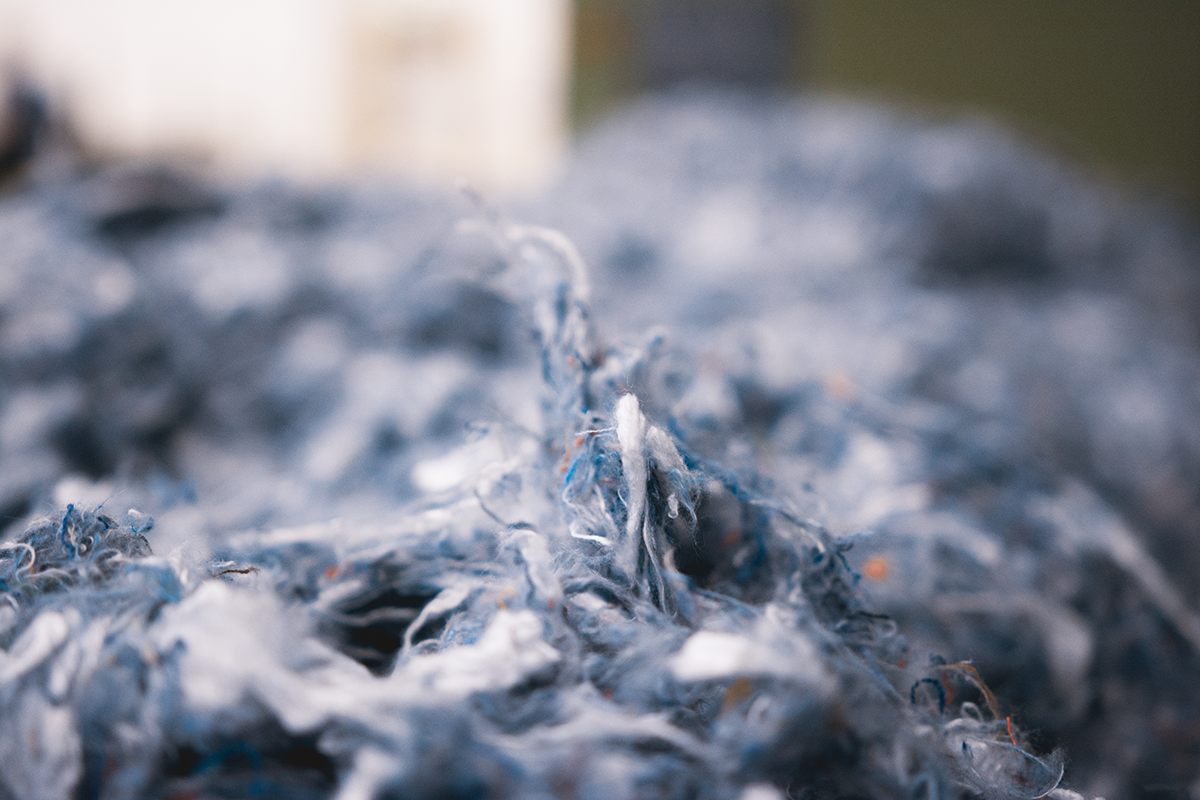Our innovative manufacturing process in 7 steps:
Harvesting
Where some see waste, we see opportunity. One of our garments' principle raw materials is ‘post-consumer’: it lived a previous life. After collection, items are sorted according to quality and usability. A small proportion containing chemicals too heavy for processing are sent for downcycling (used in industrial materials, not landfill). The remainder goes into HNST’s recycling process.


Shredding
Our German based specialist recycling partner first removes all the clothes’ hard parts (such as buttons or rivets) and labels, by using smart mechanical and magnetic separation techniques. They are then carefully shredded into fibres through mechanical recycling.

Spinning & Weaving
Next, we combine recycled cotton with low impact materials such as organic cotton and TencelTM. These are spun into yarn and dyed with the cleanest alternatives. For our HNST signature blue denim, we use SmartIndigo, saving water and minimising harmful by-products.
Our black jeans are dyed using a recyclable method, allowing wastewater filtration of dye pigments to be repurposed later. We’re experimenting with natural mineral pigments for our seasonal collections– stay tuned.
After dyeing, our yarns are then woven into a new, soft, high quality fabric. We are proud that nearly half our finishing process is powered by solar energy.
Design
The majority of mainstream clothing is not designed for recycling, to easily become new clothing later. At HNST our denim is designed with circular processes front of mind.
Typical barriers to recycling include blended fibres, rivets, and polyester labels: however we love a challenge and are solving these problems. Even down to the surface: conventional denim yarns are coated with PVA plastic, a water pollutant. Instead we use Pectin, a food waste derivative, to coat our yarns.
Sewing
Expert seamstresses transform the recycled denim fabric into HNST garments. We insist on ethical, safe and healthy working conditions, adhering to strict regulations and workplace standards. So we only partner with European suppliers.
Conventional jeans can travel up to 60.000km from farm to closet However at only 6.000 km, HNST jeans travel one tenth of that.
Washing
Due to aggressive and polluting techniques, traditional denim washing during the manufacturing stage carries a high, negative environmental impact.
At HNST, we only use ecological washing methods which is verified by GOTS, Bluesign, or ZDHC certifions. To create our shades of blue, cutting edge processes (ozone fading, lasers, and enzymes) minimise the need for the traditional harmful substances that damage ecosystems and human health.
We are also proud that approximately a third of this process uses solar energy.
Circular Consumption
We want to empower our customers to love and use their HNST jeans for as long as possible.
To infuse more love into denim, we offer a repair service. But products do eventually expire, so we enable customers to return unwanted product for our recycling, and offer a discount on subsequent purchase(s).